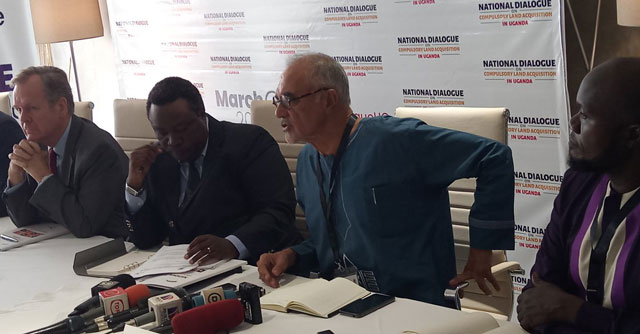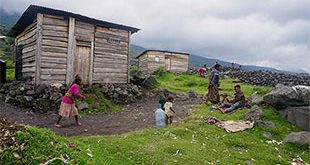
Kampala, Uganda | THE INDEPENDENT | Professor Mahmood Mamdani has argued that the framers of the 1995 are to blame for the current controversy over land in Uganda. He says they in effect returned the 1900 colonial agreement which catered for the interest of the big landowners at the expense of small property owners.
Mamdani, the Director of the Institute of Social Research at Makerere University says the makers of the constitution were overtaken by regime survival politics when considering articles related to land. The NRA regime according to Mamdani was still seeking for popularity.
Mamdani was a keynote speaker at a national dialogue on compulsory Land Acquisition in Uganda last week . The Dialogue attended by over two hundred participants was the first of its kind as the government drafts a Bill on compulsory land acquisition.
Mamdani, also Herbert Lehman Professor of Government at Columbia University, New York says the changes in the land law in 1995 should be understood as a counter-revolution. He says there is a need to ask why was it possible.
Mamdani says the current opposition to compulsory land acquisition is more of a political than a development challenge.
The proposed Bill is the second attempt by the government to revise laws so as to exercise its right to take over private land for public use. The first attempt by the government to exercise that right also known as the right of eminent domain led to public outcry.
The government in June 2017 introduced an amendment to article 26 of the Constitution to enable it or local governments to deposit with court compensation awarded by the Government for property declared for compulsory acquisition.
Government or a local government would take possession of the property upon depositing the compensation awarded for the property with the court, pending determination by the court of the disputed compensation amount.
The Bill was later withdrawn because there was opposition even with in the government about the intention of amending one of the articles in the bill of rights in the 1995 Constitution. Now the government through the Lands Ministry is suggesting amendments to the Land Acquisition Act 1965 which provides for the compulsory acquisitionof Land.
Sheila Ampeire Lwamafa, a State Attorney with the Directorate of First Parliamentary Counsel says the bill among other changes introduces a tribunal to consider disputes that would arise during the takeover of private land for public good.
Mamdani says the suggested changes should avoid a situation similar to the 1900 agreement which was used to turn the right of eminent domain into an exercise of expropriation of small peasants’ land without any compensation.
He says as the race for the accumulation of property gathers pace in Uganda, owners of big properties are divided into two groups.
He said there is an old group which is still interested in productive investment while the new group has a roving eye for speculative gain.
Mamdani added that proponents of development or those seeking to take over private land have always couched private interests in the language of public interests. He suggests that the development talk needs to be put to public scrutiny so as to determine whether it is actually aligned to the public good.
Mamdani wondered whether every infrastructural project being developed have eventually served the public good to warrant compulsory acquisition of private individual’s land.
On the question on whether the government should have the right to acquire private property for the public good, Mamdani agreed that the right of private property is not absolute and it has always been subject to the right of eminent an inherent right of state sovereignty.
But he says private property must only be taken for public use but just compensation must be paid for property taken.
Mamdani says there are three types of landowners in Uganda. Those he said include; the owners of small property, speculators and big property owner.
He suggests that speculators must be penalized rather than awarded under the proposed Bill. His suggestion comes amidst reports that a number of speculators had rushed to Hoima, Bulisa, Nwoya and the districts through which the East African Crude Oil pipeline is to be built in anticipation of huge compensation.
The speculators reportedly were privy to information about where the oil and gas infrastructure was to be located so they rushed to those areas, bought land cheaply in anticipation of huge compensation.
The Eminent domain or Compulsory land acquisition question is one of those under inquiry under the Justice Catherine Bamugemeriere Commission of Inquiry into Land matters.
Sections of the participants at the debate wondered why the government is introducing the commandment to the 1965 law before Bamugemereire produces her report.
 The Independent Uganda: You get the Truth we Pay the Price
The Independent Uganda: You get the Truth we Pay the Price


